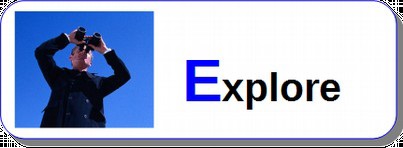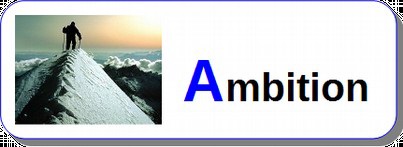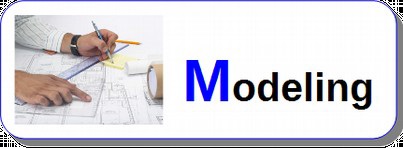The coach will invite the client to consider essential questions starting with what, who, how, when, and where. The bigger goal to achieve will be divided into smaller sub-goals, much easier to handle and achieve. The coach will bring the client’s attention on SMART goals: Specific (Significant, Stretching, Simple), Measurable (Meaningful, Motivational, Manageable), Accepted (Appropriate, Achievable, Aligned, Aspirational), Reasonable (Relevant, Realistic, Resourced, Resonant) and Time-bound (Time-Specific, Trackable, Tangible). The smaller SMART outcomes generated will be prioritized. Needed actions will be delimited.
 The fifth step is named “Undertake”. Now the client knows how to achieve their goal. Their action plan defined in the Modeling step has still to be implemented, executed. It may feel good, but knowing is often not enough, the client will have to make sure they stay focused and committed to take actions.
The fifth step is named “Undertake”. Now the client knows how to achieve their goal. Their action plan defined in the Modeling step has still to be implemented, executed. It may feel good, but knowing is often not enough, the client will have to make sure they stay focused and committed to take actions.
In this phase, the coach will support the client to confirm what they need to do first. Roadblocks or barriers that may get in their way and prevent the client from achieving their plan are openly addressed. The coach may encourage the client to get below the surface, to face what might hold them back. Bringing awareness there will eventually help the client moving forward faster. The coach will also regularly check the client’s commitment to change and to take action. The client will be invited to identify supports and set up structures to ensure the execution of the action plan. Both supports and structures are unique to the client and the situation they are in. The impact of the actions and the change process on the client’s environment will not be forgotten.
The coach will frequently give the client feedback based on his observations. Offering a specific description focused on the client’s behavior should sharpen the client’s self-awareness and help them enact improvements and realize the remaining gaps to goal achievement. In addition, the client will be invited to celebrate any small step along the coaching process to bring more awareness and positivity. The coach will also acknowledge and enthuse the client whenever necessary. They will gain clarity and more positive energy. Their motivation and commitment to achieve their plan will be reaffirmed.
 The sixth and last step is named “Praise”. The coach and the client review what has been accomplished until then. The client looks back on the coaching process, at what they learned, and gains new awareness. They celebrate milestones reached and follow up their action plan, adjusting it whenever necessary. They are welcomed to stay accountable along the journey and give themselves feedback to their coach.
The sixth and last step is named “Praise”. The coach and the client review what has been accomplished until then. The client looks back on the coaching process, at what they learned, and gains new awareness. They celebrate milestones reached and follow up their action plan, adjusting it whenever necessary. They are welcomed to stay accountable along the journey and give themselves feedback to their coach.
In this last phase, the coach and the client focus on the outcome of the coaching process and review what has been achieved against the original intent. The performance of the coaching process is assessed, focusing on learning and awareness, but also on emotional development, not forgetting the steps already accomplished. The client is invited to show accountability and ownership for their engagement in the coaching process, for the actions accomplished and the remaining actions to take. The coach encourages further the client to celebrate what has been learned and achieved, to praise themselves, fueling energy for the way to come. Adjustments to the original plan may be discussed. Support, commitment and accountability are reasserted.
At this stage, the coach also encourages the client to deliver feedback about the coaching process. They review what was helpful, what was difficult, and what they would like to be different in the future. If a sponsor is part of the coaching relationship and interested in a follow-up, the client will be invited to write their feedback about the coaching process to the sponsor and report their learning and achievements facilitated by the teaming-up of coach and client.
Application of the TEAMUP© coaching model (sample coaching questions)
Example 1: TEAMUP© in leadership coaching for newly appointed manager.
 What would make our coaching relationship rewarding for you, as an aspiring leader?
What would make our coaching relationship rewarding for you, as an aspiring leader?
What is important for you in the concept of leadership?
 What makes you a good leader now?
What makes you a good leader now?
Where do you see your strengths as a leader?
 What would make you a great leader?
What would make you a great leader?
What kind of leader will you be once you reached your goals?
 How will you become that better leader?
How will you become that better leader?
What do you need to start with, to become that inspiring leader?
 What might get in your way to be that great leader?
What might get in your way to be that great leader?
What will support your commitment to be a good leader?
 What did you learn so far in becoming an authentic leader?
What did you learn so far in becoming an authentic leader?
How will you hold yourself accountable to become an effective leader?
Application of the TEAMUP© coaching model (sample coaching questions)
Example 2: TEAMUP© in cultural sensitivity coaching for the manager of an international team.
 What do you expect from a coaching relationship in your intercultural context?
What do you expect from a coaching relationship in your intercultural context?
What difference will a greater cultural sensitivity make?
 When encountering people from other cultures, what is important for you?
When encountering people from other cultures, what is important for you?
Where do you see your talents when dealing with different cultures?
 With a high level of cultural awareness, what would work well?
With a high level of cultural awareness, what would work well?
What kind of team leader will you be once you developed greater cultural sensitivity?
 How will you become more culturally sensitive?
How will you become more culturally sensitive?
What needs to happen to become that successful leader, aware of culture differences in your team?
 What might get in your way to develop a greater cultural sensitivity?
What might get in your way to develop a greater cultural sensitivity?
What will support your commitment to encounter the others’ differences?
 What did you become aware of, while developing your intercultural competency?
What did you become aware of, while developing your intercultural competency?
How will you hold yourself accountable to be an effective culture sensitive leader?